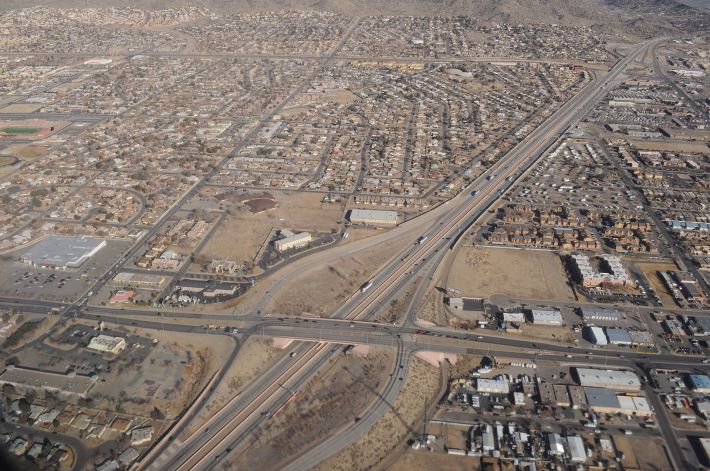
Last fall, national environmental advocates sat down with officials from U.S. DOT to talk about how federal transportation policy can address climate change.
There is wild variation between state transportation departments when it comes to green transportation policy. Some of the more sophisticated agencies, like California's and Oregon's, are starting to factor greenhouse gas emissions into their transportation plans. Most are content to keep on expanding highways and supporting development patterns that are disastrous for the climate. There are no federal incentives to nudge states in a better direction.
Environmental advocates saw an opportunity in the 2012 transportation bill, called MAP-21. U.S. DOT was in the process of drafting new rules, mandated by MAP-21, requiring transportation agencies to assess their performance on several fronts. By having state and regional transportation agencies track and report progress on objectives like reducing traffic fatalities, the thinking went, improvements would follow.
Transportation-related carbon emissions seemed like a logical metric to include, so the environmental advocates made their case to U.S. DOT. They lined up letters of support from the Minnesota, California, and Pennsylvania departments of transportation, from 16 members of Congress, and from the National Association of City Transportation Officials, among others.
"To their credit, the [Obama] Administration, they put this out there as one of the items that they want to work on," said Deron Lovaas of the Natural Resources Defense Council, one of the organizations leading the campaign. "It’s a legacy item for this presidency. It’s part of the climate agenda."
In April, U.S. DOT released a 400-page draft of proposed federal rules to assess states' performance on congestion management. Appended was a short, six-page section posing 13 questions about how the agency should measure climate impacts.
The proposed congestion metrics were a disappointment, however, because they didn't do enough to change standard practice -- which rewards road projects that generate more traffic. And the short section on climate impacts didn't live up to expectations that had been raised by press leaks from Obama administration officials.
But Lovaas is confident that when all is said and done, U.S. DOT will enact effective reporting requirements about the climate impacts of transportation systems.
"This is a legacy issue for the secretary of transportation and the president," he said. "It’s not about kicking the can down the road."
The climate change rule could be an important corrective to older federal environmental standards, which often lead to perverse results. Air quality standards, for instance, justify road widening projects because they only consider the short-term reduction in traffic back-ups in a very localized area, not the long-term effect of building car-dependent sprawl everywhere.
The new rule, said Lovaas, can be more sophisticated, shifting the focus from "what happens with [individual] projects" to "what’s happening with this portfolio of investment."
It's important for advocates to weigh in and tell U.S. DOT how the final rule should be crafted, Lovaas said. "They’ve asked 13 questions and I think they’re all serious questions."





